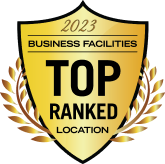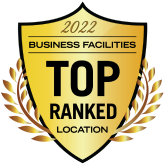
2/18/2015

With approximately 135 million adult "makers" in the U.S., the "Maker Movement" is getting a lot of buzz. But what exactly is the Maker Movement and why should you care … especially if you're a manufacturer? We posed these questions and more to Alicia Gibb, Executive Director and Founding President of the Open Source Hardware Association and author of "Building Open Source Hardware: DIY Manufacturing for Hackers and Makers." Her answers may surprise you.
Q: So, in a nutshell, what is the Maker Movement?
A: It's really the growth of people making their own things. It encompasses all forms of DIY — crafting, growing your own food, home maintenance, etc. But with respect to manufacturers, we're talking more about Open Source hardware — hardware designed to be available to the public, so that anybody can build whatever they want. "Hardware hackers" are interested in using things in unintended ways — breaking, remaking and experimenting. The key is the sense of community and collaboration, sharing what you've made so that others can copy and tweak — asking and answering questions in the interest of lifting everyone up to a new level.
Q: Why now? What forces have converged to make this a "movement"?
A: I think people truly have a desire to be more than just a consumer. In the early 1900s, probably many more people understood how the manufacturing process worked. But now we're really detached from how things get made, and we want to get back to being inventors and makers. There's an environmental aspect too — a focus on fixing things, instead of just throwing them away and creating more waste.
Economically speaking, the rise of 3D printers was actually enabled by open development — Lulzbot is one example. Overall costs of previously expensive technology have been driven dramatically downward, and the open exchange of knowledge on the Internet has lowered the technical barriers to sophisticated technologies. Fields like additive manufacturing (3D printing) and electrical engineering are now extremely accessible, even to children.
Q: So why does this matter to U.S. manufacturers?
A: It matters because if you want to be a game changer, you're going to have to do things differently. Companies like Chevy and Ford and Intel are paying attention — why not you? Even if you're a contract manufacturer, not selling direct to consumers, be aware of the trend — understand what this new community wants. They want to build or at least customize their own things. Consider cell phones. Some people want different sensors or they want the GPS taken out. Instead of one size fits all, we need smaller runs or to make things more modular, quick-turn. One day I hope that when you ask what the minimum order quantity is, the answer is always just "1."
Q: But small runs and giving things away isn't conducive to running a business.
A: Think of all this collaboration and intellectual crowd-sourcing in terms of innovation. Actually, Nathan Seidle, founder and CEO of SparkFun Electronics in Boulder, Colo., gave a TED Talk where he said the open-source model enables you to save money and make money earlier on a product. You don't have the costs of lawyers, patents, IP, etc., and you have to move and innovate more quickly. I think the future of manufacturing in our country is going to be fascinating. Building on the ideas of others and sharing concepts could move us forward much faster.
Q: What's your advice?
A: Get out in the community and talk to people who are engaged in this movement. Take note of what's happening. What kinds of tools does this next generation of inventors need? Consider how and when we'll get to the point where whatever we imagine can definitely be manufactured. The person tinkering in the garage could be your biggest client tomorrow.
About the Open Source Hardware Association
The Open Source Hardware Association aims to be the voice of the open hardware community, ensuring that technological knowledge is accessible to everyone, and encouraging the collaborative development of technology that serves education, environmental sustainability, and human welfare. Learn more here.
Want to learn more about the Maker Movement?
Attend a free screening of a new documentary.
A free screening of a feature-length documentary on the Maker Movement will be held March 19th in Schaumburg.
"Maker" is from the producers of the internationally acclaimed "Design & Thinking." The film explores the new wave of Do-It-Yourself and Do-It-Together culture fueled by passion and powered by the advent of new technologies — plus the impact on society, culture, and economy in the U.S.
The screening is sponsored by the Golden Corridor Advanced Manufacturing Partnership (GCAMP) and the communities of Elk Grove Village, Hoffman Estates and Schaumburg. Open to the public, it will be held on March 19th from 7 p.m. to 9 p.m. at the Schaumburg Prairie Center for the Arts.
Watch the trailer here.
Space is limited. Find details and RSVP to reserve seats here.
About GCAMP
The Golden Corridor Advanced Manufacturing Partnership (GCAMP) is a diverse group of employers, education institutions, training providers, local government, and other stakeholders who share the goal of ensuring the "Golden Corridor" — which includes Elk Grove Village — continues to be a leader in Manufacturing. Learn more here.











